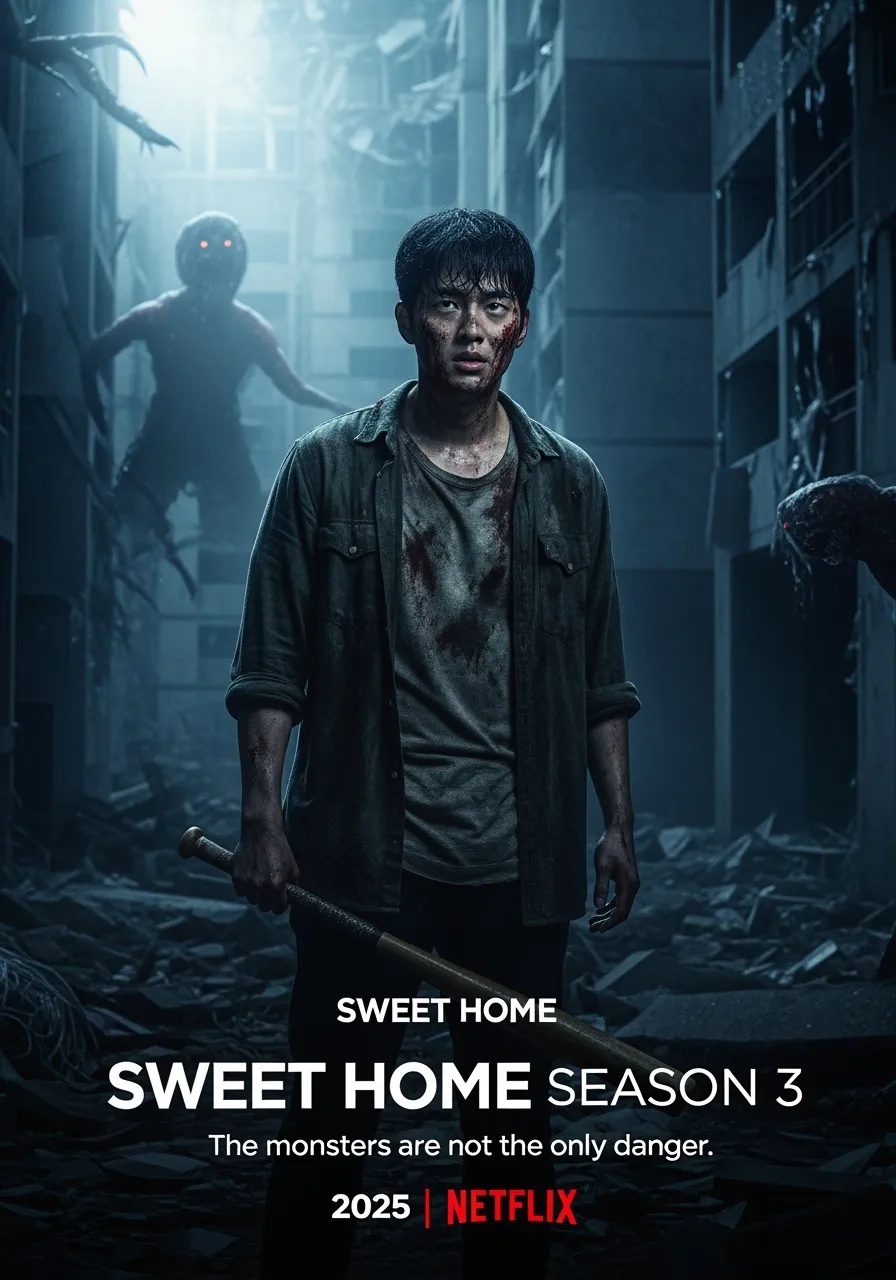In an age of fast-paced thrillers and stylish spectacle, The Wild chooses silence over noise, gravity over gloss. This South Korean noir drama isn’t here to impress with fireworks—it hits deeper, like a bruised memory that refuses to fade. With stark visuals, slow-burning tension, and a lead performance etched with pain, The Wild is a quietly devastating meditation on guilt, betrayal, and the impossibility of redemption.
🔪 Plot: One Punch. One Mistake. A Life Changed Forever.
Woo-cheol was once a rising underground boxer—a man with fists as fast as his ambition. But in one illegal match, a single punch kills his opponent, and his life crumbles. Years later, he’s released from prison, a man changed, hollowed by time and regret. He returns to his hometown hoping for peace, but peace is nowhere to be found.
The streets he once ruled have changed. His childhood friend is now a bitter cop. His former allies run drugs through alleys drenched in neon and blood. And Woo-cheol, despite all efforts, is pulled back into a game of dirty money, fractured loyalty, and revenge that refuses to die.
🎭 Performances: A Man of Few Words, Many Wounds
Park Sung-woong delivers a masterclass in restrained emotion. As Woo-cheol, he doesn't shout, cry, or plead. He observes. He endures. His silence says more than dialogue ever could. The weight of guilt is etched in every movement—from his hesitant steps to his sunken gaze.
The supporting cast orbits Woo-cheol like ghosts from a past he can’t shake. Old friends turned enemies, crooked cops who once admired him, and gangsters who remember him as both weapon and liability—they each play a role in this slow, inevitable descent.

🎥 Direction and Visual Style: Cold, Stark, Unforgiving
Director Kim Bong-han crafts a cinematic world that feels drained of color, hope, and safety. The visuals are drenched in shadows and blue-toned hues. Streetlights flicker like dying memories. Alleys and boxing rings feel like cages. The film’s look isn’t polished—it’s deliberate, raw, and suffocating.
Fight scenes are not stylized. There is no choreography here—only chaos, bone, sweat, and consequence. Violence is sudden, brutal, and most of all, personal. Every hit feels like history coming back to claim its due.

💭 Themes: Redemption Doesn’t Always Come
At its core, The Wild is about survival after the damage is done. Woo-cheol doesn’t want revenge or power. He wants erasure—an impossible wish in a world that remembers every scar. His past is not just memory; it’s currency, weapon, and curse.
The film doesn’t offer easy forgiveness. It doesn’t let its characters heal neatly. What it does offer is an honest, unflinching look at a man trying to carry on when his name, his fists, and his silence have become all he has left.

✅ Strengths
-
Park Sung-woong’s haunting, minimalist performance
-
Moody, immersive noir cinematography that pulls you into the emotional weight of every scene
-
Slow, deliberate pacing that prioritizes character over spectacle
-
Emotional resonance that builds quietly but hits hard in the final act
-
Realistic, brutal fight sequences that avoid glamorizing violence
❌ Weaknesses
-
Some secondary characters lack development, existing mostly to reflect Woo-cheol’s journey
-
Narrative pacing may feel too slow for audiences expecting traditional action or revenge beats
-
Villains and antagonistic forces are underexplored, making some late-stage twists feel underpowered
-
Occasional tonal detachment might limit emotional connection for viewers unfamiliar with Korean noir conventions
🌟 Final Verdict
Rating: ★★★★☆ (4/5)
The Wild is not for everyone. It’s not loud, not flashy, and it certainly isn’t easy. But for those who appreciate slow-burn storytelling rooted in pain, silence, and moral ambiguity, it offers a deeply affecting experience. It doesn’t ask you to root for redemption. It asks you to sit in discomfort, to observe a broken man navigate a broken world—and to ask yourself whether survival is enough when forgiveness never comes.

It’s not a knockout. It’s a bruise that lingers. And that’s exactly the point.
Recommended For:
-
Fans of Korean noir and slow-burn psychological thrillers
-
Viewers drawn to internal conflict, atmospheric storytelling, and morally gray characters
-
Those who appreciated films like Bleak Night, A Bittersweet Life, or Unforgiven
-1751164409-q80.webp)
-1740282288-q80.webp)
-1747716802-q80.webp)

-1748427036-q80.webp)